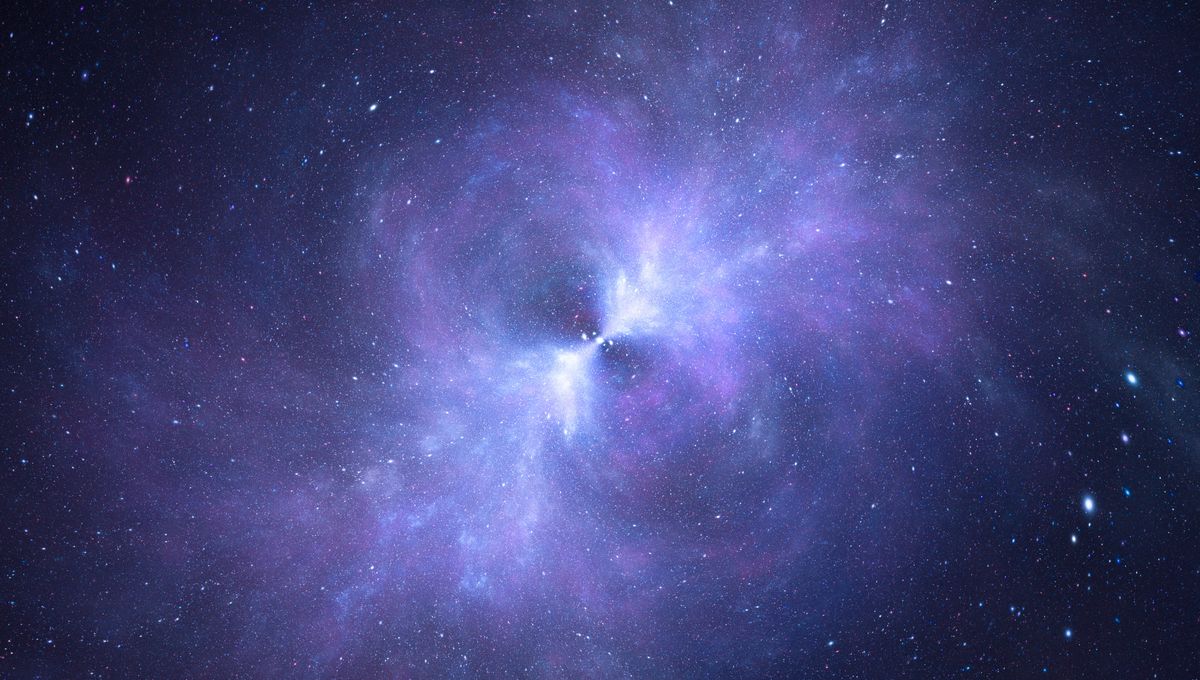
Black holes are not eternal. Extremely slowly, they lose mass and energy in the form of thermal radiation – heat. This is known as Hawking radiation, and over incredible time frames would lead to black holes evaporating, eventually disappearing. A new theoretical paper suggests that this is true for more than just black holes: that it is the ultimate fate of everything that exists in the universe.
Hawking radiation happens because of what takes place at the event horizon, the surface of no return. Nothing can escape a black hole, not even light, so crossing the event horizon is a fateful moment. That boundary separates the universe from the black hole. But just over the edge, interesting things can happen. Quantum mechanics suggests that space-time has energy, and that energy can spontaneously turn into particles and their antiparticles. They then annihilate, turning once again into energy.
But at the boundary, this process is only half completed. One particle of the pair gets eaten by the black hole, and the other escapes into the universe. And that’s Hawking radiation. Theoretical physicists at Radboud University have now questioned a crucial aspect of this scenario. Is an event horizon necessary to have Hawking radiation? As it turns out, you can have it elsewhere.
“We demonstrate that, in addition to the well-known Hawking radiation, there is also a new form of radiation,” co-author Michael Wondrak said in a statement.
The emergence of particle pairs is not exclusive to space-time around the event horizon, but it was assumed that gravity and the curvature of space-time away from black holes were not enough to separate the particles created in such a way. It turns out that some can escape.
“We show that far beyond a black hole the curvature of spacetime plays a big role in creating radiation. The particles are already separated there by the tidal forces of the gravitational field,” explained co-author Walter van Suijlekom.
Their calculations show that being near the event horizon allows more particles to escape their pairs, but it is not at all a necessary requirement.
“That means that objects without an event horizon, such as the remnants of dead stars and other large objects in the universe, also have this sort of radiation. And, after a very long period, that would lead to everything in the universe eventually evaporating, just like black holes. This changes not only our understanding of Hawking radiation but also our view of the universe and its future,” third co-author Heino Falcke added.
The Hawking radiation temperature is inversely proportional to the mass, so the bigger the object the smaller the emission. It would be interesting to see how that plays out with the curvature extension.
The study is published in Physical Review Letters.
Source Link: The Whole Universe Might Be Doomed To Evaporate